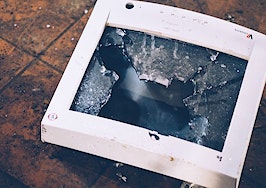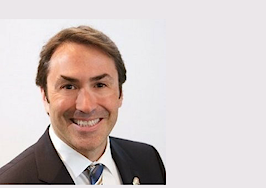A former technology consultant for National Association of Realtors subsidiary Realtors Property Resource has launched a crowdfunding campaign to raise money to sue RPR, Inman has learned.
Len Komar, a software developer who worked as a contractor for RPR from March 2016 to June 2017, alleges RPR wrongfully accused him of overbilling for his work, resulting in his termination.

Len Komar
“These allegations were made by RPR, and to this day I have never been provided either evidence to substantiate these claims nor a chance to defend myself,” Komar wrote in a case summary on the legal crowdfunding site CrowdJustice.
Komar told Inman he could prove the allegations were false and hoped to raise $22,500 to retain the Irvine, California-based law firm Ray & Gourde to represent him in a lawsuit against RPR alleging “interference with contract, and perhaps additional claims for negligent and intentional interference with prospective economic advantage.”
Komar would also like a letter from RPR that absolves him of any wrongdoing concerning the allegations of overbilling as well as an “apology from the parties involved.”
“Here’s the deal: I don’t mind being fired,” Komar said. “I’m a contractor. It’s the fact that I was accused and slandered in the process. And I was never communicated to, I was never talked to, I was never given the chance [to defend myself]. I was fired immediately.”
Because he was unable to find work for approximately six months, until December 2017, he alleges $53,000 in actual damages and says being wrongly accused has taken a “personal and emotional toll.”
NAR and RPR declined to comment for this story. “It’s not the policy of the National Association of Realtors or Realtors Property Resource to comment publicly on any employment dispute,” RPR spokesperson Reggie Nicolay said in an email, speaking on behalf of both NAR and RPR.

Screen shot of Len Komar’s CrowdJustice page
By the end of this year, NAR will have spent at least $203 million on RPR, a for-profit subsidiary that has never produced a profit and which 88 percent of its members don’t use regularly. That figure includes budget cuts to the company NAR made earlier this year as well as funding for broker data platform Upstream (which RPR operates) and the now-defunct Advanced Multilist Platform (AMP) project.

Source: NAR | Note: This graphic does not include funds allotted for Upstream and AMP
Still, RPR’s finances are a mystery to virtually all of the 1.3 million Realtors who pay for the company’s existence. NAR only provides select groups of members with information about how the company spends its money — and none of those groups include the NAR board of directors.
According to NAR, “the vast majority of RPR’s budget is devoted to technology to create, manage and grow” its property information database. Last fall, an Inman investigation found that the software developers and engineers who work for RPR were nearly all independent contractors — contrary to what then-RPR President Marty Frame told Inman.
At the time, at least 19 contractors from four different consulting firms were working for RPR, including the firm that hired Komar, Lateral Data Solutions (LDS) and a much larger consultancy called Neudesic. Komar had already left RPR by the time Inman conducted its investigation, but he corroborated Inman’s findings. “RPR doesn’t code anything. They have one or two employees [who code]. Everyone else is contractors from LDS and Neudesic,” he said.
Komar told Inman he was happy working at RPR, though there were signs from the beginning that all was not well with the company.
Just before he started he received a forwarded email in which Brett Nordby, RPR’s vice president of technology, expressed his frustrations with the RPR platform’s performance and said Komar would be coming on to investigate why RPR’s servers couldn’t handle more than 600 concurrent users — for a platform that is supposed to be available to all of NAR’s million-plus members.

Screenshot of email forwarded to Len Komar by a former RPR contractor from Brett Nordby, RPR’s vice president of technology

Brett Nordby
“They were told they had to spend $800,000 in order to have the website not crash. I was called in [to] go in and fix it,” Komar said.
He spent a year rewriting code that had been written by contractors from Neudesic, a software development consultancy that has been with RPR from its inception, since before NAR acquired Cyberhomes for $12 million in 2009 and turned it into the basis of its property database.
“[My timesheets show] all the work that I did fixing their crappy code. RPR spent millions of dollars on garbage,” Komar said.
“I was paid like one hundred and some thousand dollars just to go in and recode everything. That doesn’t include all the middle-tier work that the middle and front end guys did,” he added.
He worked on RPR’s core platform — the property database — not Upstream, but chuckled upon hearing that one reason RPR was chosen as the vendor for Upstream was because the company planned to build on its existing technology to create Upstream.
“They had to start from scratch because they couldn’t use a lot of the code from RPR because it was so bad,” Komar said, noting that that was likely a reason for Upstream’s delayed launch.
RPR’s technology is “very fragile” due to its “poorly architected system” and “poorly written” and “non-optimized” code, according to Komar.
In his opinion, RPR would have no chance of selling the platform. “Anyone who did their due diligence would give them a failing grade,” he said.
It was Nordby who ultimately accused Komar of overbilling, he said. Komar contends this was due to a flawed interpretation of computer logs that showed when he was connected to RPR’s network and servers — something that was not required to complete his work, given that he had more than 50 stored procedures on his laptop and part of his workday was spent in meetings.

Marty Frame
Komar said he does not know why Nordby accused him and hopes it will come out in court. But Komar suspects the reason Frame did not try to challenge Nordby’s claims was because of how important Nordby is to the functioning of RPR.
“[RPR’s servers] run on accounts, like a Windows account. They are all under Brett Nordby’s personal (RPR) account. That’s a major IT no-no. If he gets hit by a bus and they don’t have his password or his password expires …” Komar said.
When Komar was there, only Nordby could push code into “production” (what people see on the RPR app and website), and he was the only person who had the access to fix any problems with the vital importation of listing data into RPR, Komar said.
“He’s the one that controls everyone’s access to everything … No one in the company has the ability to walk him out the door. Let’s say they did — he could literally log in and shut everything down,” Komar said.
Nordby is RPR’s “single point of failure” and one that — at least when Komar worked there — seemed to be under constant stress, according to Komar.
“I think Brett Nordby is overwhelmed because he has so many manual tasks to complete on a daily basis just to keep [the RPR platform] running. It is a fact that without his daily intervention the RPR platform does not function properly. That is what $200 million has bought,” Komar said.
Nordby declined to comment for this story. Frame and Neudesic did not respond to requests for comment.

Jessica Edgerton
Komar provided Inman with a September 2017 letter from NAR Associate Counsel Jessica Edgerton, which was sent in response to a demand letter from Komar’s former attorney. In NAR’s letter, Edgerton states that RPR engages a company called HMB as an independent contractor and that Komar was a contractor for HMB and, earlier in the year, RPR had requested that HMB remove Komar from the RPR account.
HMB Consulting is a firm owned by Riad Bacchus, who is also a project manager for Neudesic. According to Komar, he was never a consultant for HMB, but he speculated that Bacchus could have been subcontracting LDS. Bacchus was the person who notified him of his termination. Bacchus did not respond to requests for comment.
Stephen Roe, president and CEO of LDS, did not respond to voicemail and email requests for comment. However, Komar provided Inman with a letter of reference and a letter of absolution from Roe.

Stephen Roe
The letter of reference thanks Komar for his “exceptional work” and says his performance issue resolution enabled “our customer” (who is not identified) “to avoid tens of thousands of dollars’ worth of hardware acquisition cost by simply improving the performance characteristics of the existing system.”
“Your technical acumen, work ethic, and personality have all been a great fit for our team and we look forward to future opportunities to engage with you. Your contributions have added significant customer value,” Roe wrote.
In the letter of absolution, which Komar received as part of a small claims settlement against LDS in February, Roe clears Komar of the allegations of overbilling and admits the allegations were false and unsubstantiated and based on an erroneous interpretation of system logs.
Inman saw the letter of absolution, but has not published it here at Komar’s request because the settlement demands he keep the letter confidential.
Komar hopes a lawsuit against RPR will bring him “justice,” but it may also bring to light how RPR has been spending millions of its members’ dues. “I really believe [Realtors] have grounds for a class-action lawsuit for breach of fiduciary duty by RPR,” he said. “NAR members and directors should demand a full audit of the money.”







